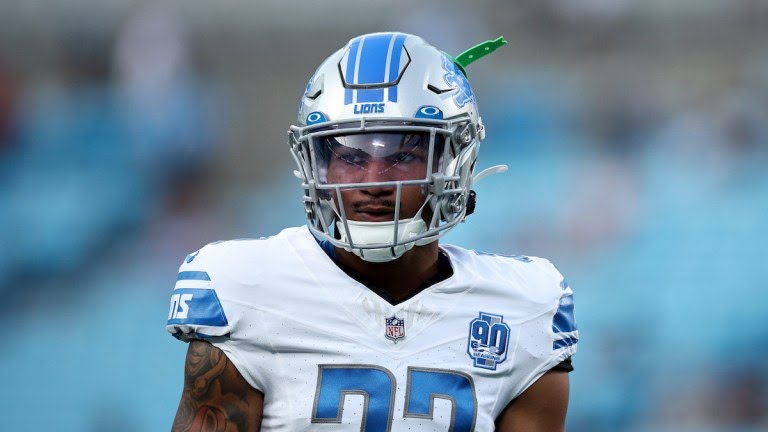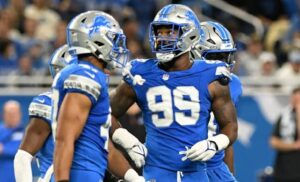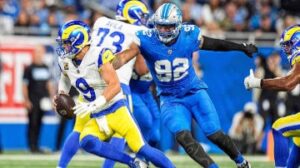
In a highly anticipated NFC North clash, Brian Branch of the Detroit Lions was ejected from the game against the Green Bay Packers for a controversial hit that sparked heated debate among fans and analysts alike. The incident occurred late in the first half when Branch delivered a forceful tackle on a Packers receiver. While many praised Branch for his aggressive play style, officials deemed the hit to be helmet-to-helmet contact, leading to his immediate ejection under the league’s safety protocols.
The decision to eject Branch has raised questions about the NFL’s emphasis on player safety and the interpretation of what constitutes a “clean” tackle. Supporters of the decision argue that the league must take a strong stance against helmet-to-helmet hits to protect players from potential head injuries. Critics, however, contend that such calls can often be subjective and that Branch’s hit, while aggressive, was not malicious in nature. This incident highlights the ongoing challenge the NFL faces in balancing physicality with player safety.
Branch’s ejection had significant implications for the Lions, who were already contending with a tough Packers offense. The second-round draft pick has quickly become a key player in Detroit’s secondary, and his absence was felt as Green Bay capitalized on the momentum shift. The Lions struggled to maintain their defensive intensity without Branch on the field, which allowed the Packers to exploit mismatches and regain control of the game.
As the league reviews the incident, it will likely revisit its guidelines regarding player conduct and safety. Branch’s ejection serves as a pivotal moment in the ongoing dialogue about how the NFL can maintain its competitive edge while prioritizing the well-being of its athletes. As the Lions look ahead, they will need to adapt quickly, focusing on their depth and resilience to navigate future challenges, particularly in high-stakes matchups against divisional rivals.





